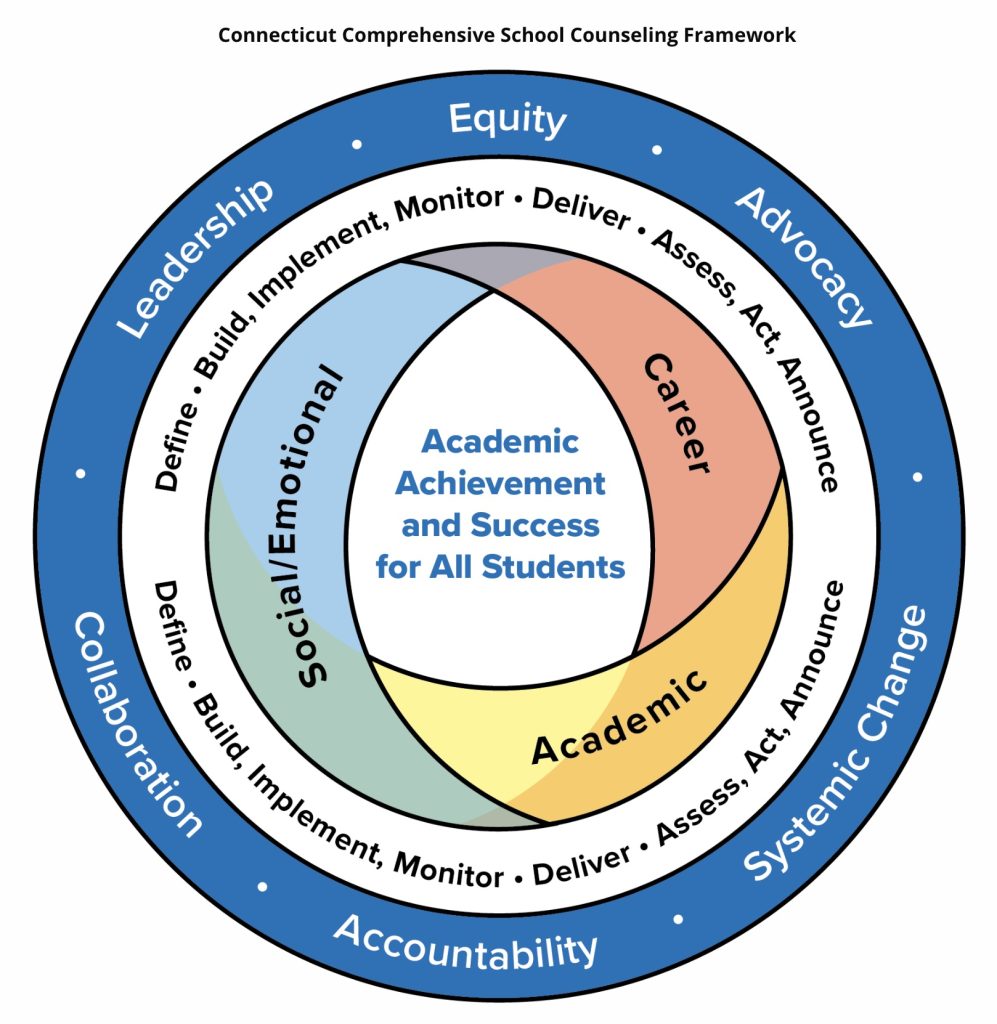Please Follow us on Gab, Minds, Telegram, Rumble, Gab TV, Gettr, Truth Social
The Connecticut State Department of Education (CSDE) published the Connecticut Comprehensive K–12 School Counseling Framework Guide in November 2020.
The guide explains the Connecticut Comprehensive School Counselor Framework (CCSCF) which is meant to enhance learning by assisting students in acquiring critical skills in the areas of academic, career, and social-emotional development. CSDE uses this framework as a "proactive, preventative, and early intervention model for school counselors to support all students in reaching their full potential.”

The CCSCF was adapted from the American School Counselor Association (ASCA) National Model: A Framework for School Counseling Programs. The six themes of leadership, equity, advocacy, collaboration, accountability and systemic change are woven throughout the CCSCF. They are integral elements of CSDE's comprehensive and systemic approach which is meant to impact the entire system and result in transformational change affecting more than just an individual or series of individuals — the whole system is meant to change.
Connecticut expanded the ASCA Model’s four themes by adding equity and accountability for better outcomes. By now, most people recognize that “equity” is the pathway for introducing the tenets of critical race theory to students.
Furthermore, this approach to school counseling assumes that all students automatically qualify for “Tier 1” support which means that all students are automatically entitled to receive comprehensive school counseling curriculum delivered by guidance counselors in the classroom, in small groups and/or in a one-on-one setting.
The guide recommends giving student needs assessments to determine the level of counseling need for a particular student. An example Student Needs Assessment (see page 67) includes statements like: "I need help/talk about concerns with parent divorce or separation” and "I need help/talk about concerns with identity, sexual orientation (questioning who I am).”
Additionally, the Connecticut School Counselor Association (CSCA) offers a series of student advocacy resources to help counselors be an ally to students. These resources are absolutely brimming with critical race theory (e.g., anti-racism, white privilege, social justice), gender and pronoun ideology, and more. CSCA even shares a link so you can join Harvard's Project Implicit to learn about your own implicit biases. Links are also provided to controversial groups like GLSEN, which has been called “the touchpoint for getting the transgender activist agenda into schools” by Parents Defending Education, and the Trevor Project, which previously hosted a forum for adults to help teens secretly transition and talk about sex.
Book recommendations for adults include CRT classics like White Fragility, White Rage and How to Be an Anti-Racist. Children's book recommendations feature a similar focus on CRT titles, including collections such as: Anti-Racism for Kids 101: Starting to Talk about Race, and Black Lives Matter: A Compilation list.
Of course, now that Kanye has declared, ”Black Lives Matters was a scam. Now it’s over”, one has to wonder if the BLM book recommendations will be updated?
And did you have any idea how progressive the guidance counselor’s office had become?
